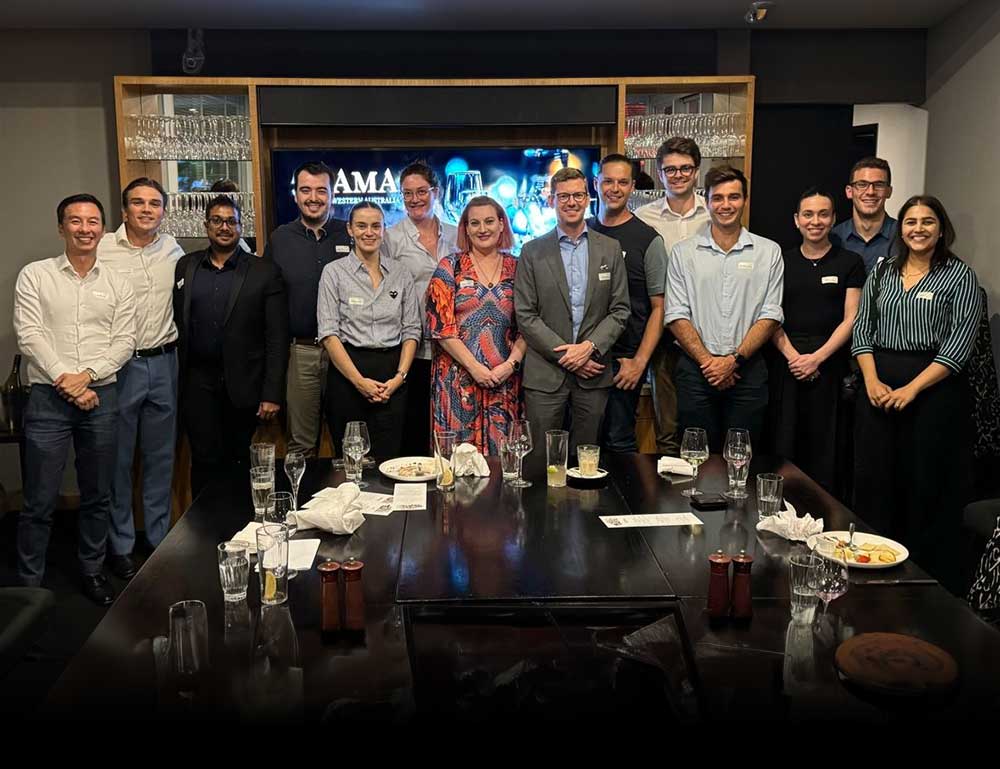

News

President’s Blog: Stronger hospitals, stronger Societies
Friday March 22, 2024
This week we held our annual dinner for RMO Society Presidents, whose organisations represent interns, residents and registrars at the local hospital level. The AMA (WA) works closely with the RMO Societies, and provides mechanisms for information sharing between them, and coordination of system-wide responses to common issues.
In the not-so-distant past there were only RMO societies at the major tertiary public hospitals. Now, there are several more, with newer societies representing doctors in metropolitan private hospitals and regional hospitals, enabled and necessitated by the expanded DIT workforces in these settings.
The RMO societies are important to the fabric of hospitals, and have a positive influence on patient care. The representative DIT voice shapes workforce planning, clinical policies and governance. I’ve observed a strong correlation (don’t ask me for p-values) between hospitals taking RMO Society (and AMA) input seriously, and scoring well in the Hospital Health Check survey. The link is in the inclination or otherwise of hospital management to maintain a strong relationship between management and clinicians. Those hospitals that take this relationship seriously are invariably those that have strong morale and culture, and are the clear employers of choice for new medical graduates and others seeking hospital employment.
The RMO societies are also organisers of hospital social events par excellence. Far from being a frivolous function, this is also such a key part of an enjoyable hospital life. This, too, benefits from management support. Being invited to the reopening of Milligan’s at Royal Perth Hospital was one of my highlights of 2023. A long-standing institution at RPH, it was shuttered during the height of COVID-19. It is to the great credit of both the RMO Society and the supportive executive team at RPH that it was relaunched. Far from being anachronistic, a grassroots-led, on-site venue for the regular social gathering of doctors and other hospital workers builds culture, connections and fond memories. It is a place to unwind, debrief and relate.
It would be great to see other hospital executive teams provide meaningful support to RMO society activities. This is particularly important in smaller hospitals, including those in the regions. Maintaining continuity of a society is very difficult with small numbers, and running an organisation on the subscription fees of only a handful of members is very difficult. RMO societies should be viewed as a force for good by all concerned; they only contribute positively to the working life of doctors, with obvious flow-on effects to staff recruitment and retention.
Follow me on Facebook: AMAWAPresident
Follow me on Twitter: AMA_WAPresident

